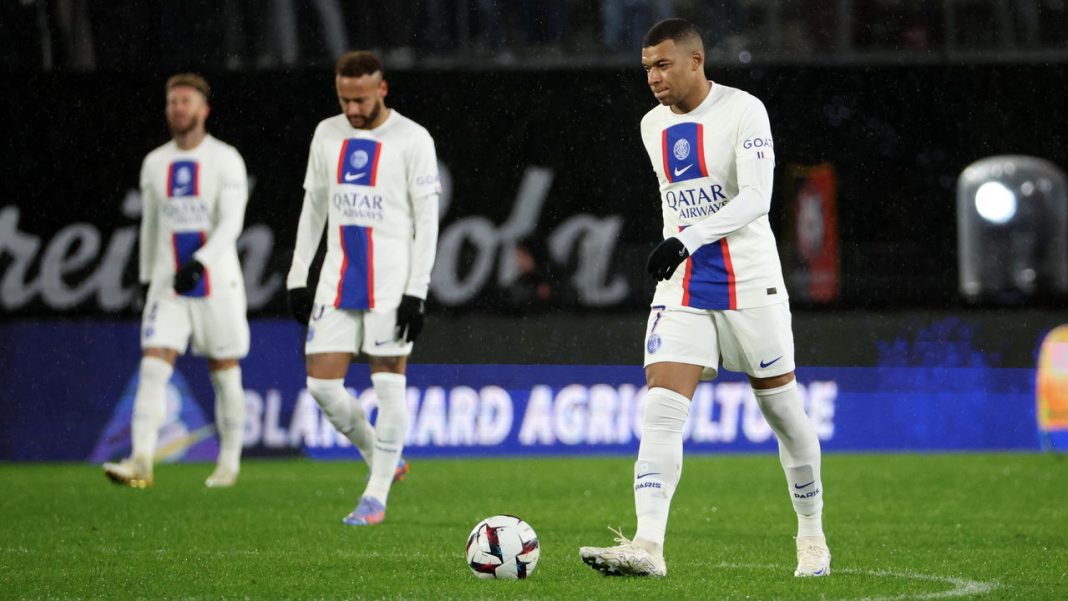The Champions League is back! At long last, Europe’s premier club competition returns with the round of 16. Here’s a breakdown of the four matchups on tap this week, along with predicted outcomes.
Paris Saint-Germain vs. Bayern Munich
- First leg: Feb. 14 (Parc des Princes)
- Second leg: March 8 (Allianz Arena)
The last 16 resumes with arguably the standout fixture of the round, as an absurd collection of attacking riches will converge when continental heavyweights Bayern Munich and Paris Saint-Germain clash in an anticipated repeat of the 2020 Champions League final. There are differences with each team this time around. Some are subtle – Eric Maxim Choupo-Moting has swapped sides. Others are glaring – Lionel Messi! No Robert Lewandowski! But the same potential for fireworks remains.
The fitness of Kylian Mbappe will have an outsized impact on the outcome. The French superstar was ruled out for three weeks upon suffering a thigh injury on Feb. 1, but he’s since made a rapid return to training and could yet feature in Tuesday’s first leg.
Julian Nagelsmann, who’s accused PSG of subterfuge over Mbappe’s status, is preparing for exactly that. Even for a team boasting Messi and Neymar, the Ligue 1 leaders need Mbappe to keep up with Bayern’s firepower. Nobody stretches the pitch like the blistering 24-year-old, who allows PSG to play vertically and strike out of thin air in transition. His absence was glaring in PSG’s last two games, both losses, against Marseille and Monaco, respectively. Without him, the Ligue 1 leaders lose the type of one-punch knockout power that makes them so devastating.
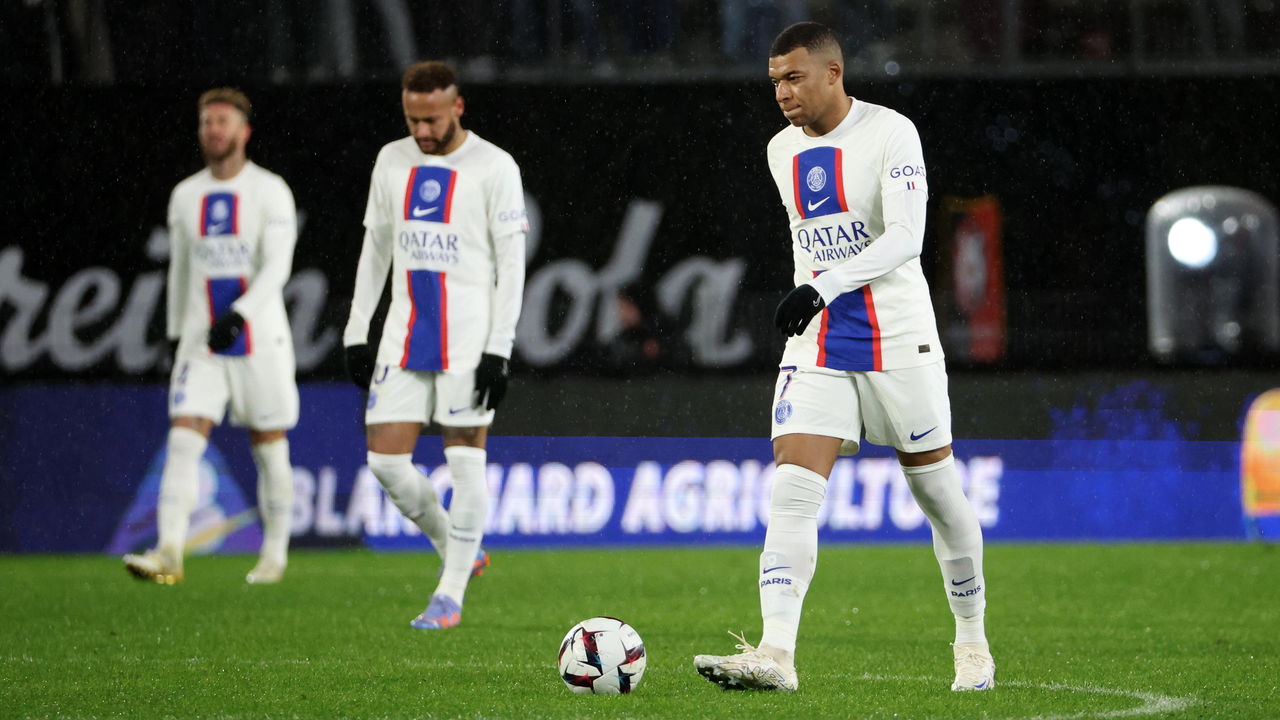
PSG outperformed expected goals by a wider margin (7.1) than any team in the Champions League group stage this season. Much of that comes down to the elite finishing ability of Mbappe, the tournament’s joint-leading scorer with seven goals. Take the explosive Frenchman away, and Christophe Galtier’s team, unsurprisingly, looks far less menacing without anybody to run behind defenders when Messi and Neymar pick up the ball and look to create.
Bayern, meanwhile, appear more rounded.
In a group that included Inter Milan and Barcelona, Bayern won all six matches, scored 18 goals – second only to Napoli in the group phase – and produced the third-best expected goal (xG) difference in the opening round. They were sluggish coming out of the World Cup break, drawing three consecutive games by the same 1-1 scoreline, but, aided by the surprising deadline-day addition of Joao Cancelo, Bayern have recaptured their imperious attacking form, scoring 11 goals in their last three games (all wins).
In truth, we all probably overreacted to the run of draws in January. There may be some turmoil behind the scenes – not uncommon throughout Europe this season – but Bayern still have the highest attacking ceiling of any team in the tournament, and, indeed, the world. Across all competitions, they have five players with at least 10 goals on the year, a list that doesn’t even include Thomas Muller and Kingsley Coman. Bayern have the weapons to ensure that PSG’s agonizing wait for a Champions League title continues.
Prediction: Bayern Munich advance after extra time
AC Milan vs. Tottenham Hotspur
- First leg: Feb. 14 (San Siro)
- Second leg: March 8 (Tottenham Hotspur Stadium)
Of all the enticing last-16 tilts, this is perhaps the most difficult to forecast.
AC Milan, the reigning Italian champions, are in complete disarray right now and look nothing like the energetic, assured team that conquered Serie A last season. Prior to Friday’s unconvincing 1-0 win over Torino, Milan were winless in seven matches across all competitions, having conceded 18 goals in that span. Dragged down by injuries to critical players, their uptempo pressing game cratered.
Underfire manager Stefano Pioli tried to stop the bleeding and create more defensive solidity by going to various lineups with three central defenders, despite obvious pitfalls; those systems don’t suit his squad, and, crucially, don’t get the best out of superstar forward Rafael Leao. Not exactly ideal preparation going into your club’s first Champions League knockout match since 2014. The returns of goalkeeper Mike Maignan, defender Fikayo Tomori, and metronomic midfielder Ismael Bennacer can’t come soon enough for the flailing Rossoneri.
And then there’s Tottenham. Oh, Tottenham. Spurs continue to be entirely erratic. Just when you think an excellent performance and result, like the recent win over Manchester City, is a revelatory sign of things to come, they turn around and get walloped by Leicester City and have to start the cycle all over again.
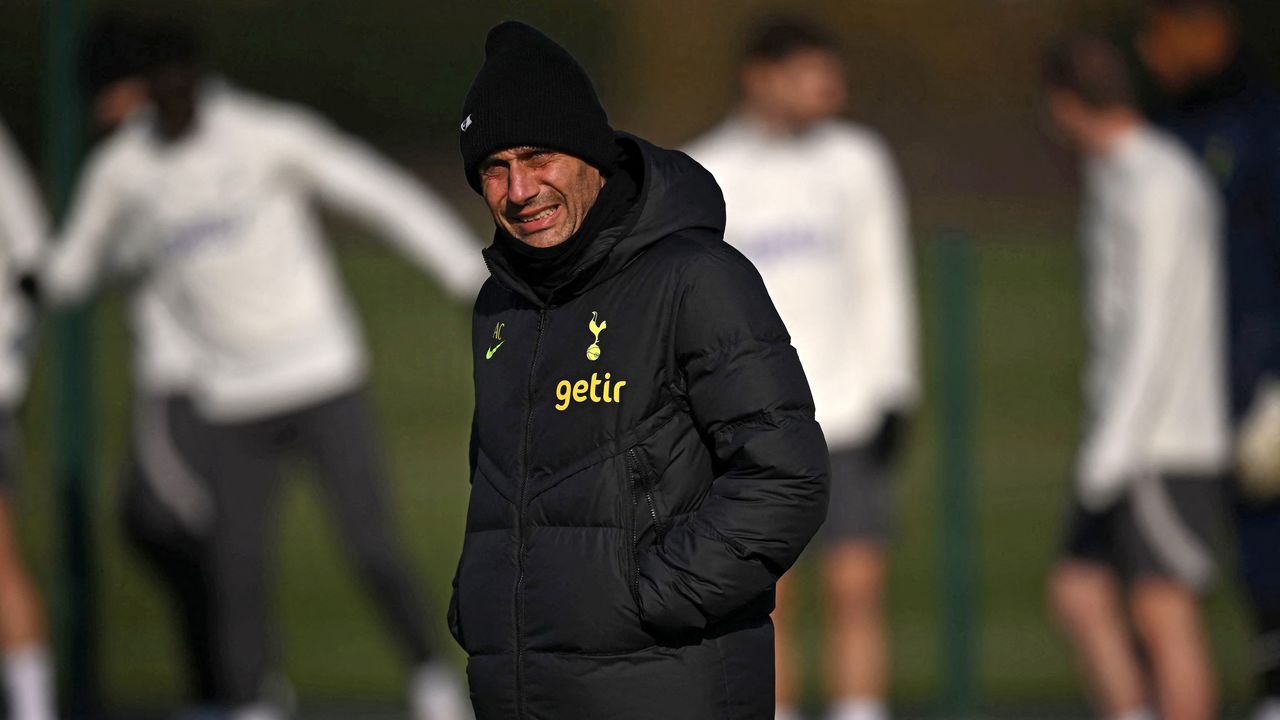
Nobody, including manager Antonio Conte, knows what to expect from this team on any given day. Making matters worse, they’re without captain Hugo Lloris, influential midfielder Rodrigo Bentancur was just ruled out for the season, and Pierre-Emile Hojbjerg is suspended for the first leg at the San Siro. Tottenham may have to try and bypass the midfield entirely to have success, which, ironically, may not be the worst thing for them.
Stylistically, Tottenham’s unwavering desire to sit deep, absorb sustained spells without the ball – to “suffer,” as Conte likes to say – and then strike at pace on the break will collide with a Milan side that lacks sharpness in possession right now. Spurs should have opportunities to play direct and hit on the counterattack over the two legs, especially if Milan continue to be sloppy with the ball.
With so many unknowns surrounding the teams, the simplest thing to do is refer back to the top-end talent. With Dejan Kulusevski and Son Heung-Min in support of star striker Harry Kane – who’s having another outstanding season – Spurs, despite their deficiencies, have the edge against a team that’s extremely fragile defensively right now.
Prediction: Tottenham advance
Club Brugge vs. Benfica
- First leg: Feb. 15 (Jan Breydel Stadium)
- Second leg: March 7 (Estadio da Luz)
More than any other tie, this meeting of underdogs highlights how drastically things can – and often do – change in the intervening months between the conclusion of the group stage and start of the knockout round.
Back in November, Club Brugge were riding a wave of euphoria after reaching the knockout stages of Europe’s preeminent tournament for the first time in the Champions League era, ousting perennial contenders Atletico Madrid in the process. Fast forward a few months, and the manager who helped author that historic achievement, Carl Hoefkens, is gone, replaced by Scott Parker after a rough run of form domestically.
The Englishman hasn’t fared much better than his predecessor, though, winning just once in seven league matches; Brugge have tumbled to fourth in the Belgian Pro League, a whopping 20 points behind Genk in the top spot. Benfica, meanwhile, finished the group stage on a similar high. Powered by one of the game’s most exciting young orchestrators in midfield, the Portuguese side topped a quartet that included PSG and Juventus. Enzo Fernandez, of course, has since left for Chelsea in the richest transfer in British football history. So, yeah, everything can change in the blink of an eye.
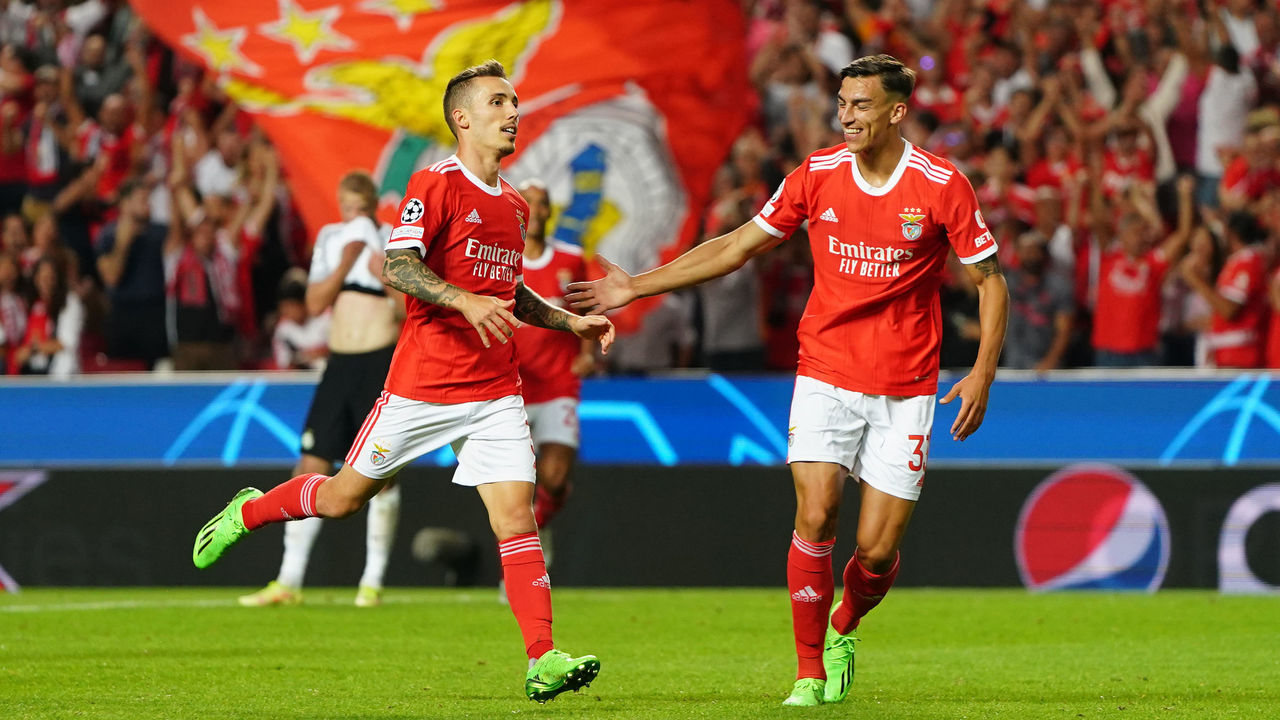
But Benfica look better equipped to handle the new reality than their Belgian counterparts. Roger Schmidt hasn’t strayed from his intense, high-pressing approach since Fernandez’s departure. And why would he? Benfica have lost just once in all competitions this season, after all.
Their rabid press allows them to win the ball back quickly, and in dangerous areas high up the pitch; only RB Salzburg made more tackles in the attacking third during the group stage than Schmidt’s squad. That boundless energy and commitment allow the likes of Rafa Silva and Joao Mario to get on the ball close to the opposing penalty area, and from there they can either find the net themselves or create chances for burgeoning striker Goncalo Ramos.
For Brugge to continue their Cinderella run, Simon Mignolet will need to stand on his head. The 34-year-old Belgian was the best shot-stopper in the group stage. Yes, seriously. His raw statistics were outstanding: he conceded only four goals from 34 attempts on target.
Mignolet’s underlying numbers were even better. Using post-shot expected goals (PSxG), which measures expected goals based on how likely a goalkeeper is to save a shot, Mignolet had no equals. With four goals allowed from a PSxG of 9.7, his was easily the best difference of any netminder during the group stage. For Brugge to have a chance of reaching the quarterfinals, he must sustain that superhuman level.
Prediction: Benfica advance
Borussia Dortmund vs. Chelsea
- First leg: Feb. 15 (Westfalenstadion)
- Second leg: March 7 (Stamford Bridge)
The clash between Borussia Dortmund and Chelsea is a case study about balance. One team, after years of searching, appears to have achieved it. The other, after impulsively spending to a degree never before witnessed in the January transfer window, is still miles away from finding it.
Dortmund, who’ve won all six of their matches coming out of the World Cup break, are led by do-everything midfielder Jude Bellingham. The superlative English teenager, 19, is a symbol of the club’s continued emphasis on identifying, nurturing, and relying heavily on young talent. But where an insistence on fielding inexperienced lineups has hurt the team in the past, Dortmund seem to finally have discovered an equilibrium between youthful exuberance and more seasoned contributors.
Bellingham is the effervescent star – he thrives in every area of the field, equally capable of finishing an attack as he is breaking one up at the other end – but he’s surrounded by the likes of Marco Reus, Emre Can, and Niklas Sule. Feisty winter recruit Julian Ryerson has added a steely quality to Edin Terzic’s side, too. The pieces all seem to fit at the Westfalenstadion. The emotional boost provided by Sebastien Haller’s incredible comeback from testicular cancer can’t be overstated, either. The Ivorian international is back amongst the goals and will play a key role in the tie.
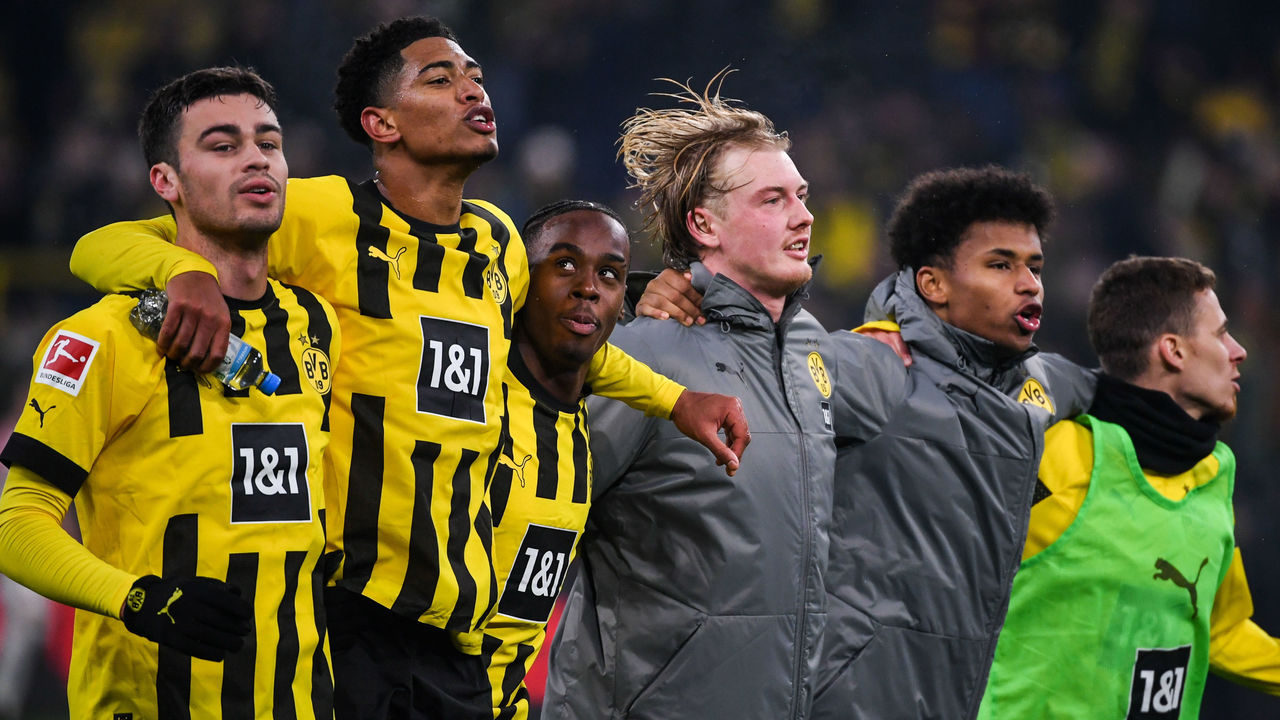
Chelsea, on the other hand, are a work in progress after an aggressive recruitment strategy brought a bevy of new faces to Stamford Bridge.
Some have settled quicker than others – Fernandez, in particular, already looks at home at the heart of the Blues’ midfield – but, all told, things haven’t yet clicked for Graham Potter. Chelsea have won just two of their nine matches since club play resumed. They’ve scored six goals in that time, never finding the net more than twice in a single match. Scoring continues to be a huge issue, and the constant chopping and changing of the lineup and tactics – not entirely Potter’s fault as he tries to figure out his best XI – isn’t helping.
That kind of unpredictability can be a positive; Terzic and Dortmund can’t possibly predict how Chelsea will line up Wednesday. But, ultimately, the lack of continuity and rhythm is a bigger issue for the English side. Perhaps Potter will figure it out over the course of the season, but the turnaround here might be too quick for a team that has been in a funk all season.
Prediction: Borussia Dortmund advance
